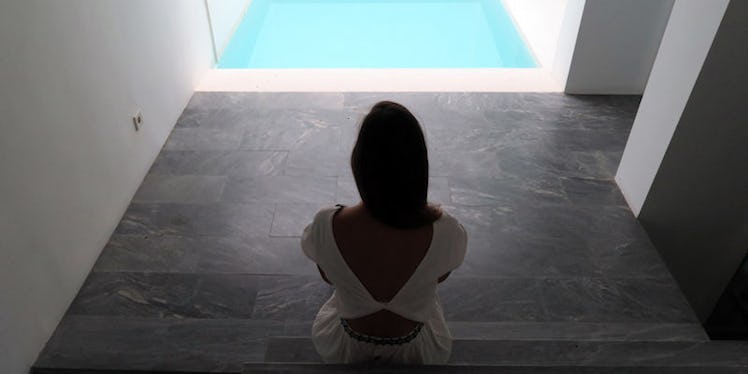
What It Feels Like To Still Be Judged For Not Following Any Religion
In the sixth grade, as I knelt down by my locker, my friend asked me what religion I practiced. My mind froze.
This was the worst possible question I could have been asked. At 14 years old, my values were far from formed, although I did have a hint about what I believed.
Instead of answering truthfully, I pretended to not know what religion really meant. I stammered, “Um, I'm Chinese.” I ran away before she could press further and see through my feigned cluelessness. Ignorance became my defense mechanism.
To begin with, I am in no way claiming that Christianity – or any religion, for that matter – is detrimental. Instead, I'm highlighting the continued prejudices against atheists and their assumed “culture.”
At an early age, I already felt like I had to hide being an atheist. In my 14 short years, without any influence from my parents, I at least had that much sense about what I believed.
I was embarrassed to be an atheist. Why did I feel like my atheism was the equivalent of having a dark and sinister secret?
Living in the Bible Belt, it seemed like being anything other than Christian was wrong. I realized that whenever someone found out I was an atheist, I was immediately assumed to be immoral.
The scorn on these people's faces was as plain as day.
As I got older, I began to slowly reveal parts of my beliefs. But I was far from revealing the full truth. I claimed that I didn't know, just “wasn't spiritual” or wasn't religious.
But I claimed I still believed in God. None of these were true. Yet, they answered the questions that were asked of me and minimized the judgement.
In high school, a close friend stated that a person must be immoral if he or she wasn't religious, while very well knowing I was an atheist. After such a personal attack, I realized I had to find the “church” within myself.
By this point, I had become comfortable with revealing I was an atheist. Although I didn't attend any formal institution and lacked a belief system, I found my morals and personal tenets that guide my actions. They are secular beliefs, including honesty, authenticity and inner strength.
But they serve the same purpose as any “real” religion.
I'm not quite sure when I began to feel OK telling people. At some point, I realized I didn't want to be friends with someone who disparaged me based on my beliefs. I discovered my “take it or leave it” attitude.
I won't change because someone else disapproves of me. Nonetheless, this hasn't changed the fact that I'm still nervous to reveal that I'm an atheist to some people.
When I go on a date, I wonder if my lack of religion will be a deal-breaker. What if my employer finds out, and is strongly against atheism? This feeling that I can't tell people about being an atheist still remains. I am now comfortable and confident enough with my identity to reveal this fact when it's necessary, but my qualms come to the surface every time.
No one, regardless of age, should feel like he or she has to choose ignorance over true self. It was tiring pretending like I didn't know, or like I believed in something that was far from the truth.
A person's choice of religion – or lack thereof – affects no one but him or her. Just like sexuality and race, religion is not something we “choose.”
While we may make the initial choice about which path to follow, what we believe in just is. We can't just simply switch to another spiritual path because someone disapproves.
So, why does this continue to be a problem? As soon as I told someone I was an atheist, the judgements and presumptions piled on. I was given no time to explain that my morals had no correlation to my lack of religion.
My family was not composed of sinning heathens like people assumed. I was a normal 14-year-old girl, who simply had different beliefs. Even today, society struggles with the ways in which atheists fit in. Yes, we've progressed.
We now have a black president, a woman as a strong candidate for the next presidential election and a greater acceptance of the LGBTQ+ community. But imagine having an atheist in any seat of power.
So, this feeling that I have to hide a piece of my identity persists. Truthfully, I don't think it will ever go away.
Some people accept me. Others do not. I can't change what people believe, and I'm not trying to.
You don't have to be in favor of atheism, but please don't form unfair prejudices. “These people” are the same as you are. They have just chosen a path that lacks spirituality.
They are not bad people. Please, take the time to look a little deeper.